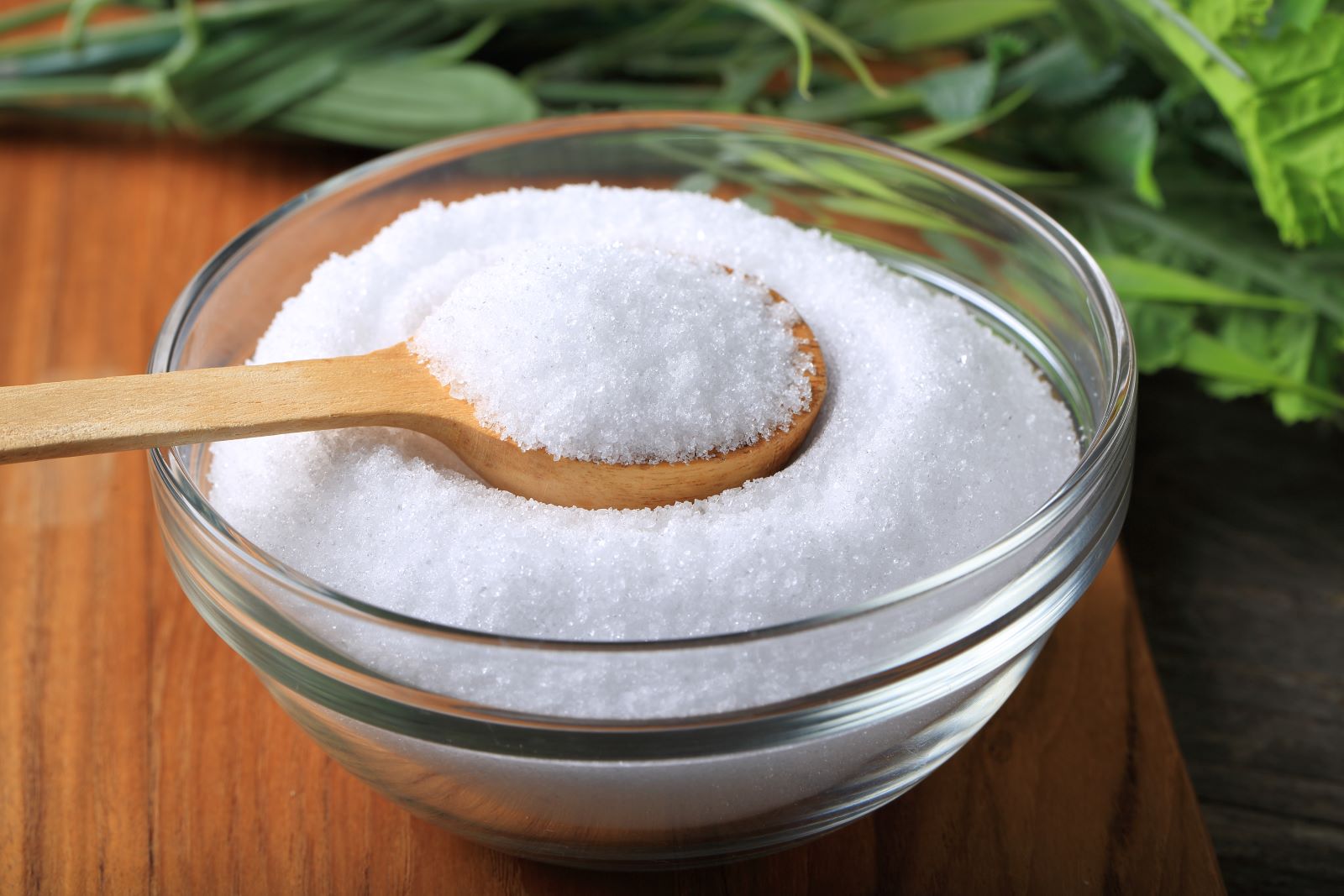<< Back
Nutrition Smack Down: Natural vs. Artificial Sweeteners

March 10, 2023
It’s a bitter pill to swallow, but you can’t avoid the fact that sugar is bad for you. Also, it’s everywhere.
“Sugar comes into our diet through a variety of ways,” says Jamie Allers, a registered dietitian with Hartford HealthCare’s Digestive Health Institute. “There is natural sugar found in carbohydrates, which includes fruits, vegetables, grains and more. Then there is the sugar that is added to foods like desserts, sweets, crackers, pasta, and bread.”
As more information comes out about the dangers of sugar, many of us have reached for sugar alternatives – some natural and others artificial.
But are they really the healthier choice? Allers breaks down the real deal with sugar, the pros and cons of natural and artificial sugar alternatives, and some practical advice for those looking to cut back.
Not all sugar is created equal
The sugar that makes its way into your body via fruits, vegetables, and whole grains actually has some health benefits.
This naturally-occuring sugar is paired with different vitamins and minerals. Plus, nutrients like fiber actually help the body absorb sugar more slowly to prevent spikes in blood sugar.
The real issues lies in sugar added by manufacturers to foods. These can quickly add up, and over time, increase your risk of heart disease, weight gain, and diabetes.
> Related: 7 Signs Your Body’s Had Too Much Sugar
What about natural sugar alternatives?
Bad news for lovers of honey and maple syrup – they don’t offer a major improvement over added sugar, Allers says.
Natural sugar alternatives like honey, agave, stevia, erythritol, coconut sugar and maple syrup may have small amounts of additional nutrients, but they affect your body the same way that added sugar does.
Some of the natural sugar alternatives can also pose health challenges. For example, Allers explains that honey and agave are higher in fructose than other sweeteners, which could be trouble for anyone with Irritable Bowel Syndrome.
> Want more health news? Text StartHere to 85209 to sign up for text alerts
So, should I switch to artificial sweeteners?
Here comes artificial sweeteners to save the day – but maybe not.
Although aspartame, sucralose, saccharine and neotame do offer zero or very few calories, they’re also much sweeter per serving than real sugar, Allers notes. That can lead to dependence and cravings.
> Related: This Artificial Sweetener Can Raise Your Risk of Heart Attack and Stroke
The official recommendation
So, how much sugar should you actually have?
It turns out that sugar isn’t a required nutrient so there’s no “Recommended Dietary Allowance” like there is for protein or vitamins.
The American Heart Association’s guidelines are no more than 100 calories (about 6 teaspoons or 24 grams) for women, and no more than 150 calories (about 9 teaspoons or 36 grams) of added sugar per day for men.
The bad news? A 12 oz. can of Coca-Cola has 39 grams of added sugar, while a Snickers bar has 26 grams, so those recommendations can be a challenge.
Ready to change? Start small.
Allers says she counsels patients to work to reduce the amount of both natural and artificial sweeteners in their diets.
“This is a topic that comes up all the time. ‘Should I switch to an artificial sweetener?’ I always say, if you drink just diet soda, drink water. If you grab sugar free protein bars, choose a handful of nuts or a healthy salad. If you get five pumps of sweetener in your coffee, cut back to four. Small changes work best.”